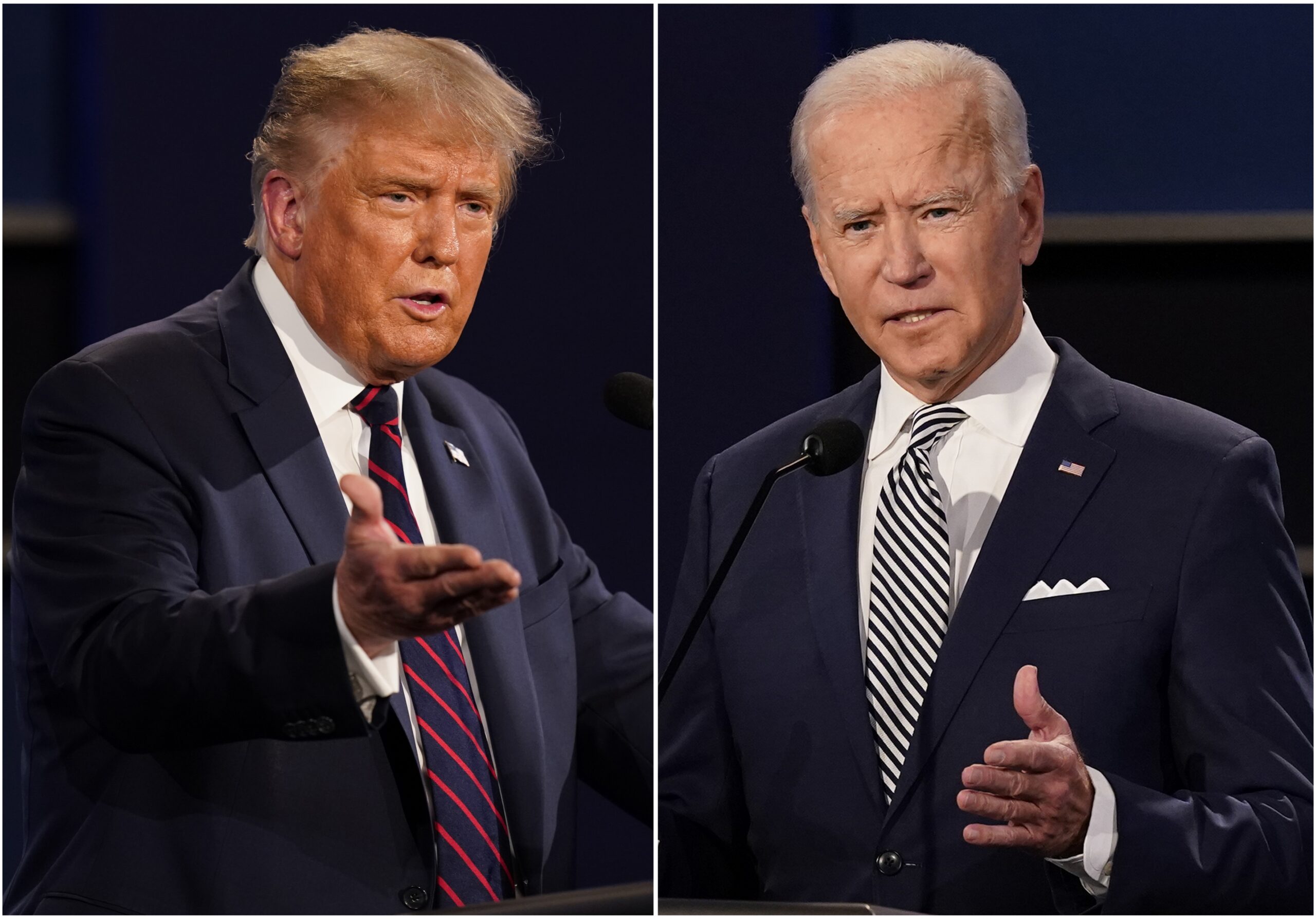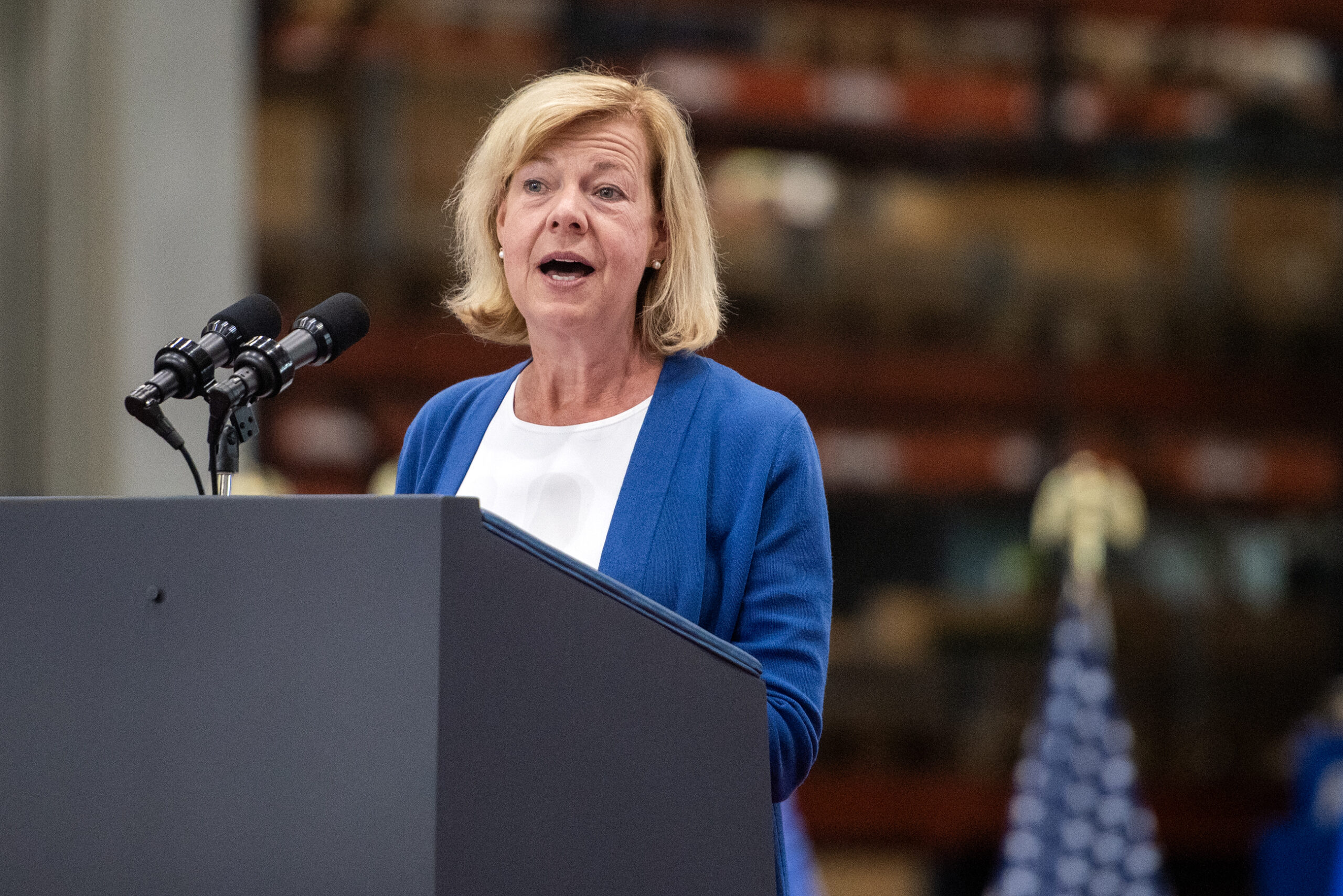Most Wisconsinites say they wouldn’t vote to reelect Democratic Gov. Tony Evers and also wouldn’t vote for Republican U.S. Sen. Ron Johnson, according to a new poll.
The newly released Marquette University Law School Poll found approval of Evers and President Joe Biden both slipped in the two months since the last time the poll of Wisconsin voters was conducted. It also found more voters disapprove of the Republican-controlled Legislature than approve of it, and slightly more are unfavorable toward Democratic U.S. Sen. Tammy Baldwin.
“This is a public, both in the state and nationally, that’s pretty grumpy about a variety of things, and I think you see it in this measure,” said pollster Charles Franklin, who directs the poll, in a video interview releasing the data. “We asked about seven political figures, and all seven of them were at least a little bit net negative.”
Stay informed on the latest news
Sign up for WPR’s email newsletter.
Those seven political figures were Evers, Johnson, Biden, Baldwin, Vice President Kamala Harris, former Vice President Mike Pence and former President Donald Trump. Trump’s unfavorable number was highest at 57 percent.
“Normally, you would think that one party would do well and the other party would do poorly,” Franklin said, “but I think this reflects that it’s a challenging political environment for politicians generally and for incumbents specifically.”
Franklin said projecting 2022 election results for Wisconsin or elsewhere would be a “fool’s errand,” and the poll didn’t ask about head-to-head matchups of candidates. Evers will be up for reelection next year. Johnson has implied he will seek reelection but hasn’t declared it. Baldwin’s next reelection would be in 2024.
The poll surveyed about 800 registered voters in the state.
Some key findings:
- 40 percent of respondents said they would vote to reelect Evers; 53 percent said they would vote for someone else; and 6 percent said they didn’t know.
- 38 percent said they would vote to reelect Johnson; 52 percent said they would vote for someone else; 10 percent didn’t know.
- Biden’s approval rating in Wisconsin dropped by 6 percentage points, from 49 percent in August to 43 percent in the new poll. Franklin noted this tracks Biden’s national approval ratings. Evers’ approval dropped by 5 points, from 50 percent in August to 45 percent in the new poll.
- 38 percent had a favorable view of Baldwin, compared to 39 percent unfavorable.
- 38 percent approved of how the state Legislature is handling its job; 48 percent disapproved.
- 41 percent of respondents said Wisconsin is headed in the right direction, compared to 51 percent who said it is on the wrong track. That’s roughly the same as in August, when 39 percent said the state was going in the right direction and 52 percent said it was on the wrong track.
- 64 percent of Wisconsinites said they were “very concerned” about inflation, compared to 49 percent in August.
The poll was released the day after gubernatorial elections in Virginia and New Jersey showed massive swings in favor of Republican candidates, with the GOP candidate winning in Virginia and the margin in New Jersey still too close to call.
The Marquette poll rates well in the analytics website FiveThirtyEight’s pollster rankings. However, like many pollsters, Marquette’s measure of the 2020 presidential election was a significant miss. Its poll on Oct. 28, 2020, found Biden 5 points ahead of Trump. Biden won Wisconsin by less than 1 percentage point.
The latest poll found one area of nearly uniform agreement across political parties. As the battle over Wisconsin’s voting maps appears headed to court, the poll found strong support for nonpartisan redistricting among all political groups. Sixty-two percent of Republicans, 63 percent of independents and 64 percent of Democrats said they favored it. Overall, only 25 percent of respondents said they believed voting districts should be determined by the Legislature and the governor.
The poll interviewed 805 registered Wisconsin voters from Oct. 26-31. The margin of error is 3.9 percent.
Wisconsin Public Radio, © Copyright 2024, Board of Regents of the University of Wisconsin System and Wisconsin Educational Communications Board.





